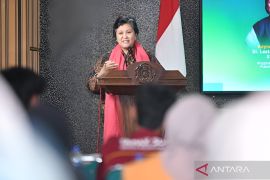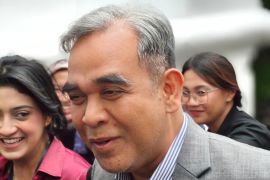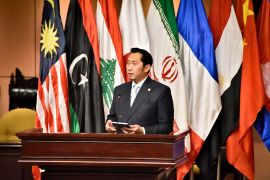"According to a Bloomberg survey, Indonesia's recession risk level is indeed small, only 3 percent. It is much smaller than other big countries, such as the United States, 40 percent; New Zealand, 33 percent; South Korea, 25 percent; Japan, 25 percent; and China, 20 percent," he said in a written statement received here on Tuesday.
Nevertheless, the potential global economic crisis still needs to be anticipated from now on so that the various possibilities can be explored early, he added.
Soesatyo also cited several global developments that have the potential to disrupt national economic stability, such as inflation in the United States, the conflict between Russia and Ukraine, and the potential for fresh tensions in Taiwan.
In addition, there are also threats presented by climate change that can affect food and energy stability, he added.
"To anticipate them, we need to immediately intensify domestic agriculture so that it does not depend too much on imports," he said.
He further said that the Indonesian government must anticipate the increase in global oil prices. The Energy Information Administration (EIA) projected in early April that the price of Brent crude oil will reach US$98 per barrel this year.
The price is far above the assumption made in the 2022 state budget of US$63 per barrel.
"If the increase in world oil prices gets higher, our fiscal capacity, which is already quite limited to provide additional subsidies to reduce potential inflation, will become more difficult," he said.
The government needs to anticipate this by considering making a change to the energy subsidy scheme from the initial commodity-based and open scheme to one where subsidies are provided directly to targeted beneficiaries, he added.
Related news: Economic recovery driven by domestic consumption: Indrawati
Related news: Tough times for national economy have ended: Minister
Translator: Tri Meilani, Raka Adji
Editor: Rahmad Nasution
Copyright © ANTARA 2022











